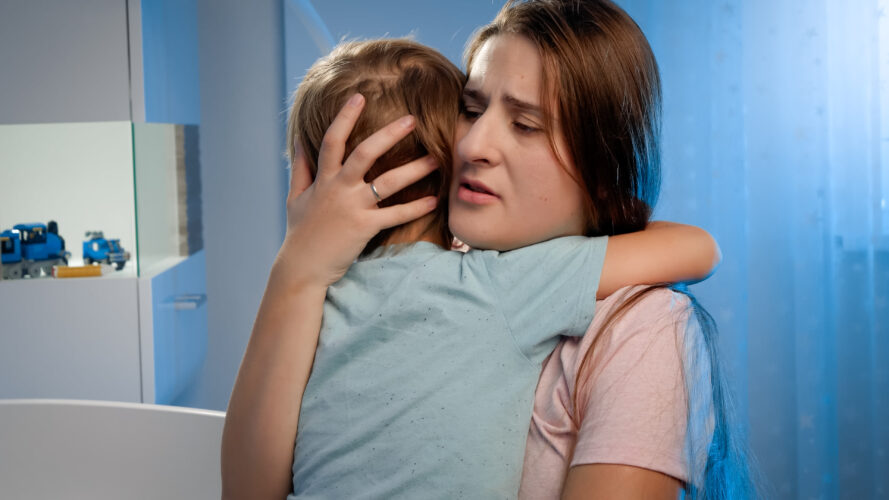What Are Nightmares?
“Nightmares are distressing dreams that generally occur during REM sleep and that often result in awakening,” says Dan Ford, a sleep psychologist specializing in insomnia treatment for The Better Sleep Clinic. They often trigger strong emotions, such as fear, guilt, anxiety, sadness, or anger.

What Is Nightmare Disorder?
While nightmares themselves are no one’s idea of a good time, they’re generally considered fairly benign sleep events. Nightmare disorder, on the other hand, is something more serious, with nightmares occurring much more frequently.

“Nightmare disorder is a REM sleep parasomnia,” says Ford. “It is characterized by repeated episodes of extremely disturbing dreams that usually involve threats to survival or safety and are well remembered upon waking.”
Why Do We Have Nightmares?
One of the most suspected reasons for nightmares is what we’re dealing with in our daily life. “The general scientific evidence points towards our dream content having a relatively strong relationship to the concerns and stressors of our waking life,” explains Ford.

But carrying over lingering feelings from stressful events in our day isn’t the only thing that could be triggering nightmares.
Stress And Anxiety
“Our levels of well-being during our waking lives correlate with specific types of dreams, such as nightmares and recurring dreams,” says Ford. If we’re dealing with higher levels of negative emotions throughout the day, we could find ourselves having a nightmare or two.

Mental Health Conditions
People with mental health conditions, including post-traumatic stress disorder (PTSD), anxiety, and depression, are more likely to experience nightmares. In fact, nightmares are a symptom of PTSD.

Medications
Antidepressants in particular are known to impact sleep, including causing nightmares.

Can Nightmares Affect Sleep?
Experiencing terror, anger, anxiety, or other heightened emotions while we’re dreaming can definitely take its toll. “Nightmares disrupt and fragment sleep, negatively impacting sleep quality,” Ford says. “And depending on how long it takes an individual to get back to sleep after a nightmare, nightmares can decrease sleep quantity too.”

In some cases, people are actually reluctant to fall asleep because they’re worried about the possibility of a nightmare, which also means less sleep.
Are Nightmares Normal?
As unpleasant as they are, nightmares are pretty common. According to the American Academy of Sleep, up to 50 percent of small children experience nightmares — and they’re scary enough for a wake up call to mom or dad. Luckily, nightmares tend to peak and then decrease around age ten.

However, adults can have nightmares too. It’s estimated that 50 – 85 percent of adults experience them now and then, but recurring nightmares — defined as more than one per week — are fairly uncommon. At this point, nightmare disorder could be the cause, with up to 5 percent of adults affected by the disorder.





